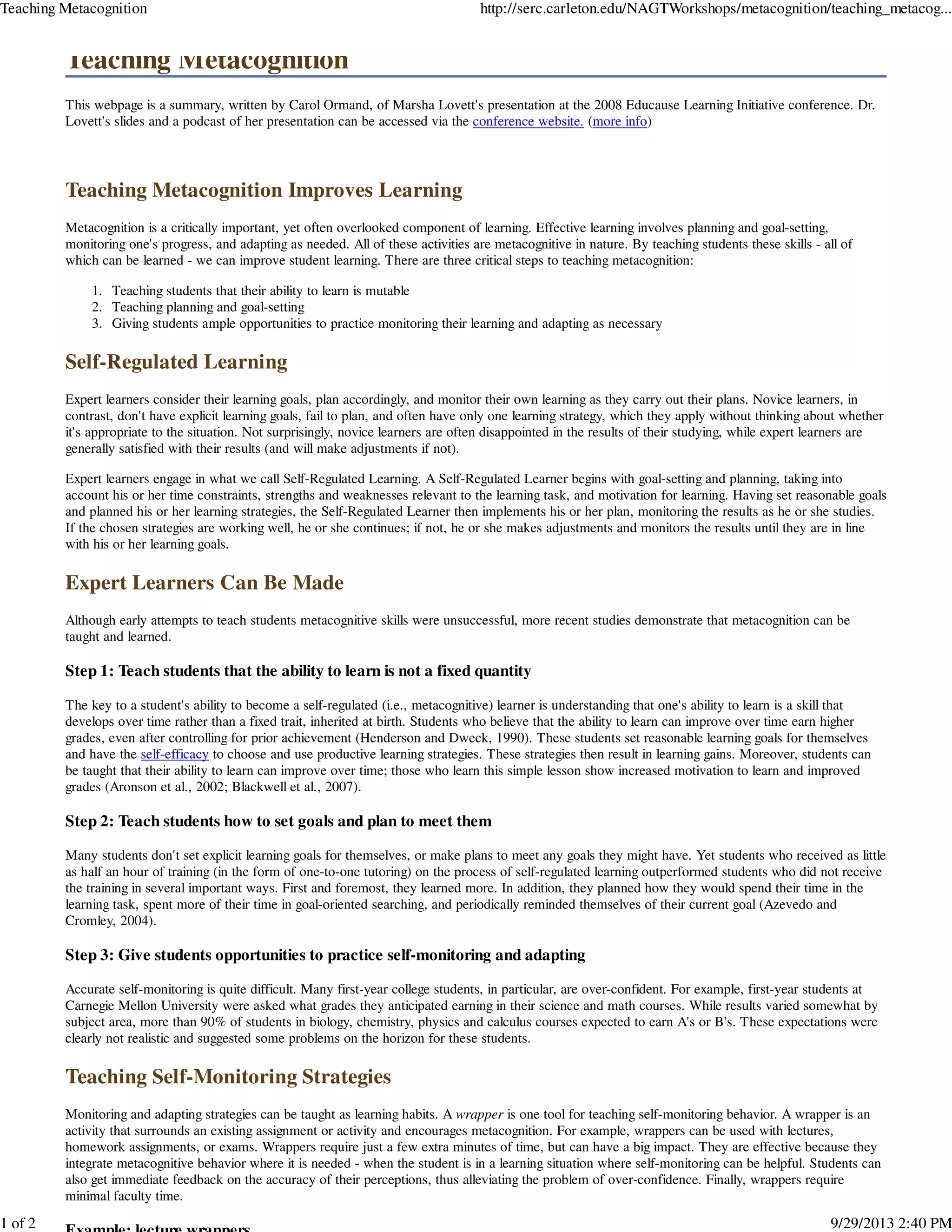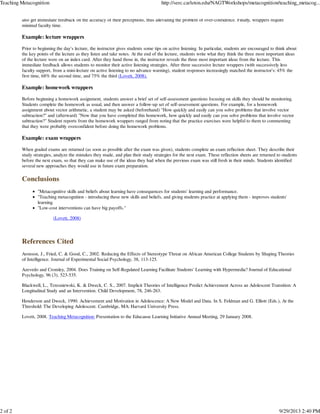The document discusses teaching metacognition to improve student learning. Metacognition involves planning, monitoring progress, and adapting learning strategies. There are three steps to teaching metacognition: 1) teaching students that their ability to learn is mutable, 2) teaching goal-setting and planning, and 3) giving students opportunities to practice self-monitoring and adapting. Wrappers, or activities that surround assignments, can be used to teach self-monitoring by having students assess their understanding before and after tasks and receiving feedback to improve accuracy. Teaching metacognition through these steps and techniques has been shown to boost student learning and performance.

